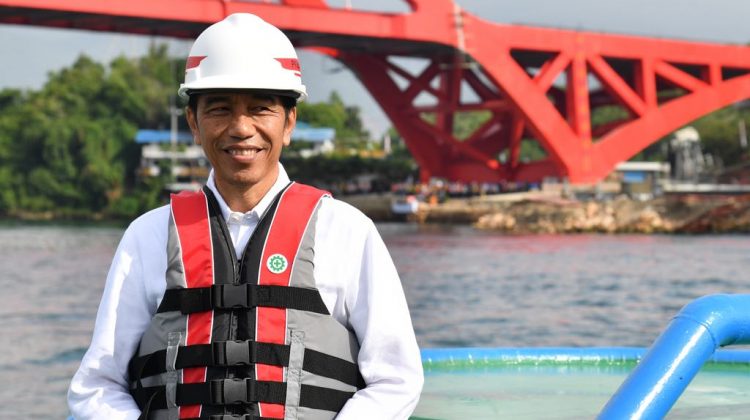Government Strategies in Building Papua
By: Iqbal Fadillah) *
President Joko Widodo (Jokowi) in the second period of leadership seems increasingly serious about wanting to prove the top priority for the people of Papua and West Papua. In the first period of his leadership, President Jokowi through the commitment of Nawa Cita has proven that regional development programs in the regions of Papua and West Papua are the main priorities that must be carried out. The government is gradually and continuously trying to realize social justice for all Indonesian people, including in Papua, one of which is through economic development on the island of Papua and accommodating the aspirations of indigenous Papuans.
President Jokowi stated that the people of Papua not only need health services, education, construction of roads, bridges and ports, but also need to be heard and talked to. This was apparently responded responsibly by the Head of the State Intelligence Agency, Budi Gunawan. As regulated in Law Number 17 of 2011 concerning State Intelligence article 29 which explains the duties of the State Intelligence Agency, one of which is to give consideration, advice and recommendations on securing the administration of government. This is solely for the purpose of anticipating various possible forms and nature of potential and real threats to the safety and existence of the nation and the State as well as the opportunities available for national interests and security.
However, some Indonesians still understand that the problem in Papua is limited to the problem of discrimination against indigenous Papuans. In fact, creating conducive social conditions for indigenous Papuans can be the key to maintaining security stability on the island of Papua. The role of civil society in creating a conducive atmosphere in Papua becomes the most important thing by involving various elements of indigenous peoples in Papua. At least, the main role of civil society through social reconstruction at the individual and collective level with the involvement of traditional elements in Papua.
According to research conducted by Harvard sociology researcher Matthew Clair, “race” is a concept formed by social construction. The concept of “race” was not created naturally based on a person’s biological condition, but was formed because of the human tendency to classify a section of society based on the physical characteristics they possess. The Indonesian government has actually tried to diversify its approach to Papua.
President Jokowi’s continuous social construction approach continues to be built to overcome various social problems that have been happening in Papua. The government made various efforts using welfare and socio-cultural approaches to indigenous Papuans. One of them was President Jokowi’s meeting with 61 Papuan Leaders at the State Palace, Jakarta on September 10, 2019, President Joko Widodo approved the aspirations conveyed by 61 Papuan Leaders solely to realize social justice in the Earth of Paradise.
However, during the Hearing Meeting (RDP) of the Papua Special Committee, the Regional Representative Council of the Republic of Indonesia (Pansus Papua DPD RI) with the Papua Customary Council, Human Rights Activists, Political and Religious Leaders discussed the problem of Papua, which was held in the City Jayapura, Papua, on 27 November 2019, led by Filep Wamafma (Chairperson of the Papua Special Committee DPD RI), produced 10 conclusions, one of which was a matter of support for the Papua Special Committee of the DPD RI for the review of the programs and policies of the National Intelligence Agency (BIN) which during this is considered to have caused divisions in Papuan society.
Negative stigma about intelligence activities seems to still be inherent in some communities. Even though Article 1 of Law No. 17 of 2011 concerning State Intelligence, it is explained that State Intelligence is the organizer of Intelligence which is an integral part of the national security system in the framework of prevention, deterrence and control of any threats to national security.
Political observer Ireng Maulana highlighted the Head of the State Intelligence Agency, Budi Gunawan, who managed to bring together 61 Papuan Figures with the President. According to the man who graduated from the Master of Art in Political Science from Lowa State University, Iowa (IA), United States of America, it is believed that the list of requests submitted to President Jokowi by 61 Papuan Leaders had already been through risk calculations and threat scales from the intelligence analysis side. . In addition, according to Ireng, the direct presence of the Head of BIN at the meeting could be interpreted as a rebuttal of the anxiety of many parties that the riot resolution approach indicated by the rebel groups wanted to be resolved through consolidation. Finally, he negated that the relationship between intelligence and decision making is key in the context of the ability to secure the interests of the state.
The same thing was conveyed by Arief Poyuono (Waketum
